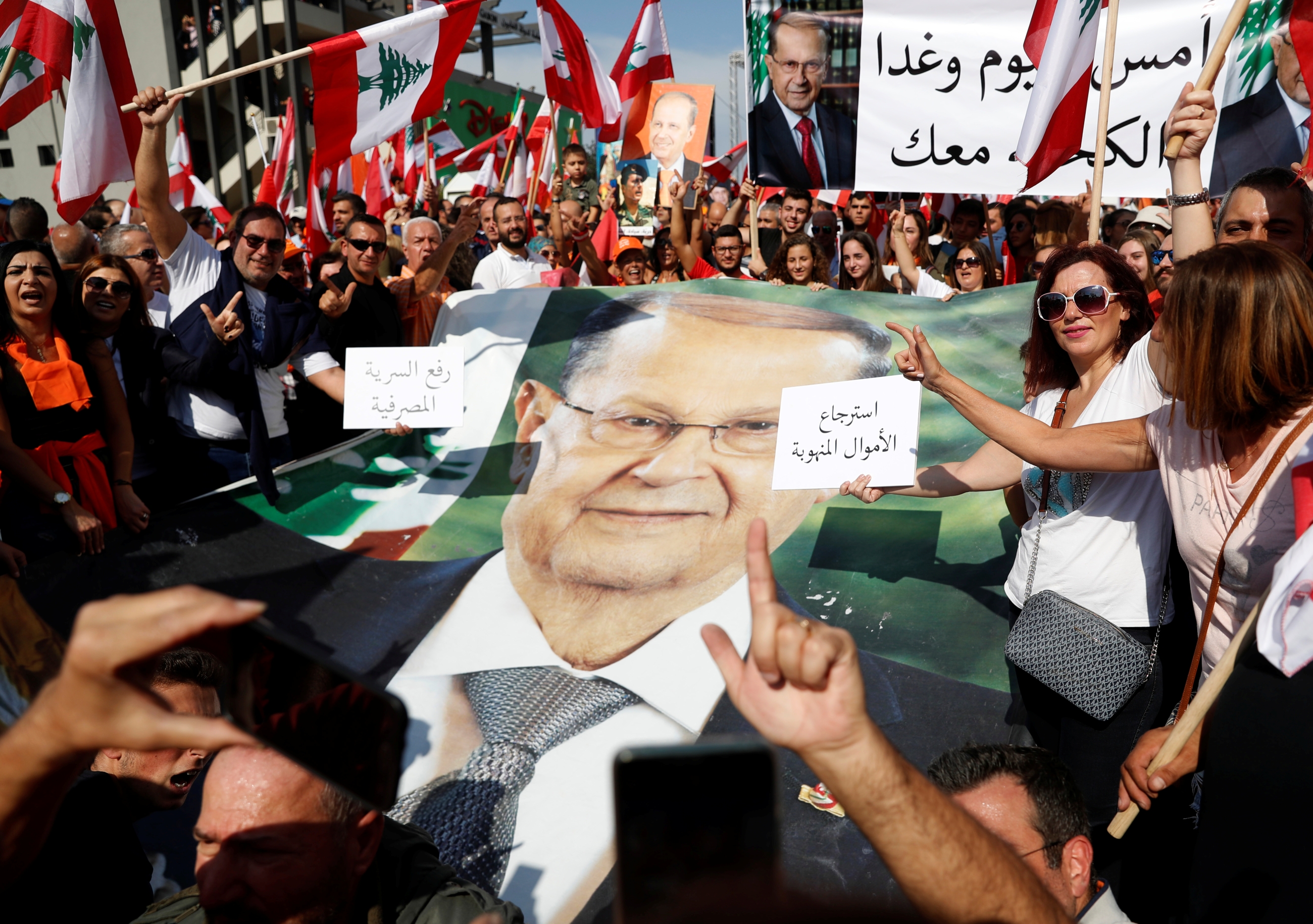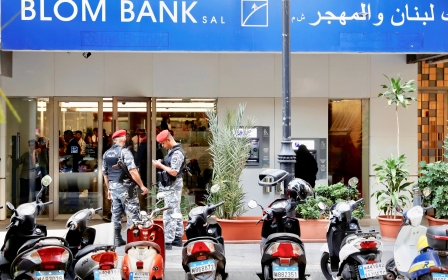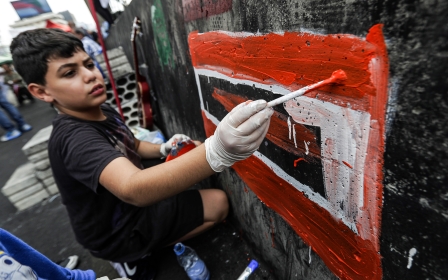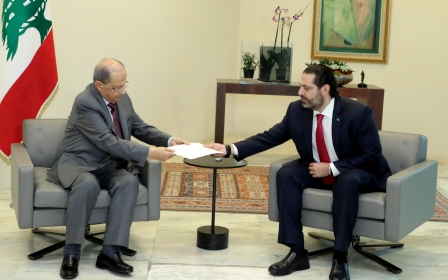Thousands protest in Lebanon after rally to support President Aoun

Lebanon's president called on the country to unite behind his reforms on Sunday, following weeks of anti-government demonstrations and just hours before protesters again took to the streets of Beirut.
In a live televised speech, aired across Lebanon, Michel Aoun addressed the thousands of his followers who came out to support him before he spoke. "I call on you all to unite," Aoun told his followers as anti-government protesters prepared to march against him. "It won't be easy, and we want your efforts."
A huge convoy of cars, some waving Aoun's orange Free Patriotic Movement party flags and his portrait, snaked across a highway on Sunday while a sea of protesters marched to the Baabda palace, where he lives, reported Reuters news agency.
Aoun's supporters were seen waving Lebanese flags and orange banners of his party as they lined up on a one-mile road in the town of Baabda leading up to the presidential palace.
Sunday's rally for Aoun was the biggest counter-protest to the wave of anti-government demonstrations that have gripped the country, leading to the fall of Prime Minister Saad Hariri last week.
New MEE newsletter: Jerusalem Dispatch
Sign up to get the latest insights and analysis on Israel-Palestine, alongside Turkey Unpacked and other MEE newsletters
Sunday evening, thousands of Lebanese demonstrated, advancing the nationwide street movement that brought down the government, only hours after the rally to support the embattled president.
Protesters streamed into Beirut's main square carrying Lebanese flags and a flurry of inventive slogans on cardboard, an AFP correspondent said.
"Revolution", they cried to the rhythm of electronic beats in Martyrs' Square. "All of them means all of them," they chanted, calling for political leaders from all sectarian stripes to step down.
Abir Murad, 37, had come from the northern city of Tripoli to take part. "We are all united against the leaders… who haven't changed anything in this country," she said.
Some calm had appeared to return to the streets of Lebanon earlier this week, with roads being re-opened and banks opening to customers after being shut since the protests began two weeks ago.
However, restrictions were reported on foreign-currency withdrawals and transfers abroad.
Stalled economic growth
Lebanon's economy has stagnated in recent years in the wake of political flare-ups, compounded by the civil war in neighbouring Syria.
The International Monetary Fund said last week that sluggish growth had given rise to the unrest, in which protesters have decried government corruption and economic mismanagement.
Hariri had attempted to appease them by halving the salaries of minister and MPs and promising to reform the energy and telecom sectors, but protesters continued to pour onto the streets, leading to his resignation on Tuesday.
It is still unclear what Lebanon's new government will look like and whether it will contain independent technocrats, as demanded by demonstrators.
In a speech after Hariri's resignation, Aoun signalled support for the protesters' demands, saying ministers should be chosen "according to their competencies and expertise, not political loyalties".
In the same speech, Aoun also struck a defiant one, defending his three years in power.
He listed the "achievements" of his presidency, starting with fighting "terrorism" - referring to battles in east Lebanon against militant groups, including the Islamic State (IS) group.
Lebanon's powerful Iran-backed Hezbollah movement, which backs Aoun, has said Hariri's resignation will waste valuable time in enacting measures needed to tighten state finances and convince foreign donors to release some $11bn in pledged aid.
While protests have waned since Hariri resigned, demonstrators continue to demand a new technocrat-led government capable of carrying out the badly needed economic reforms.
Middle East Eye delivers independent and unrivalled coverage and analysis of the Middle East, North Africa and beyond. To learn more about republishing this content and the associated fees, please fill out this form. More about MEE can be found here.




